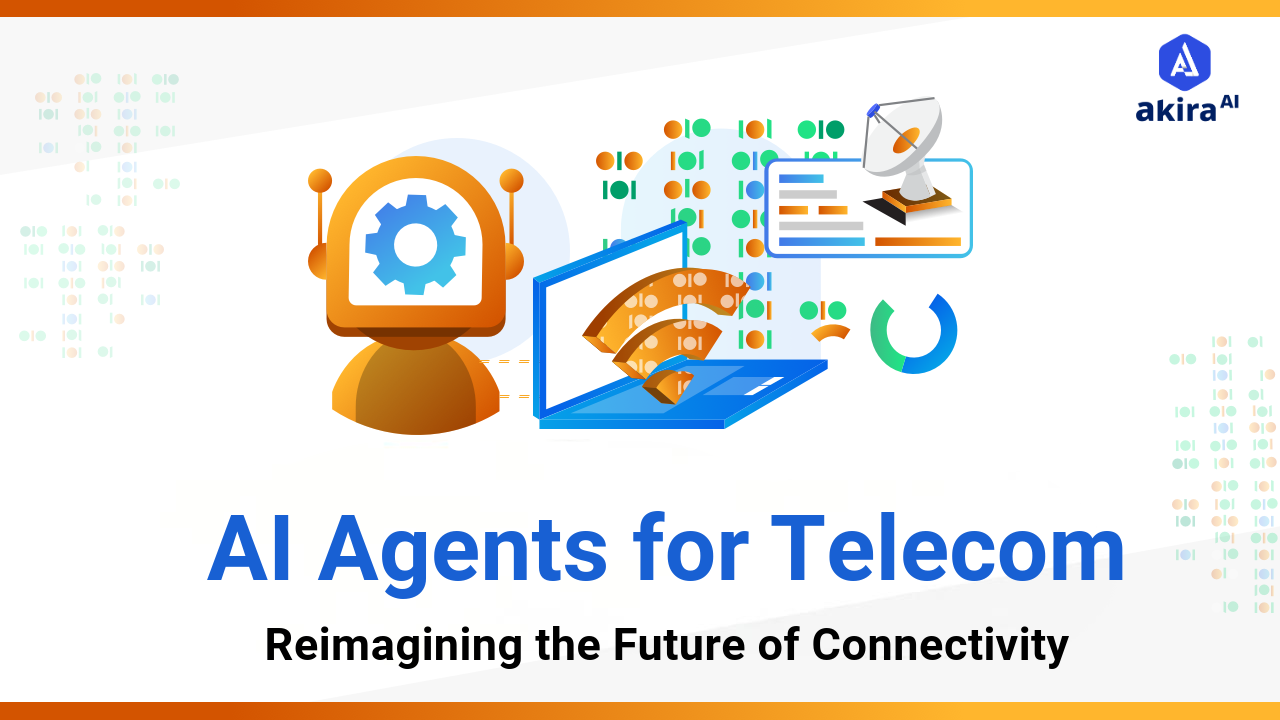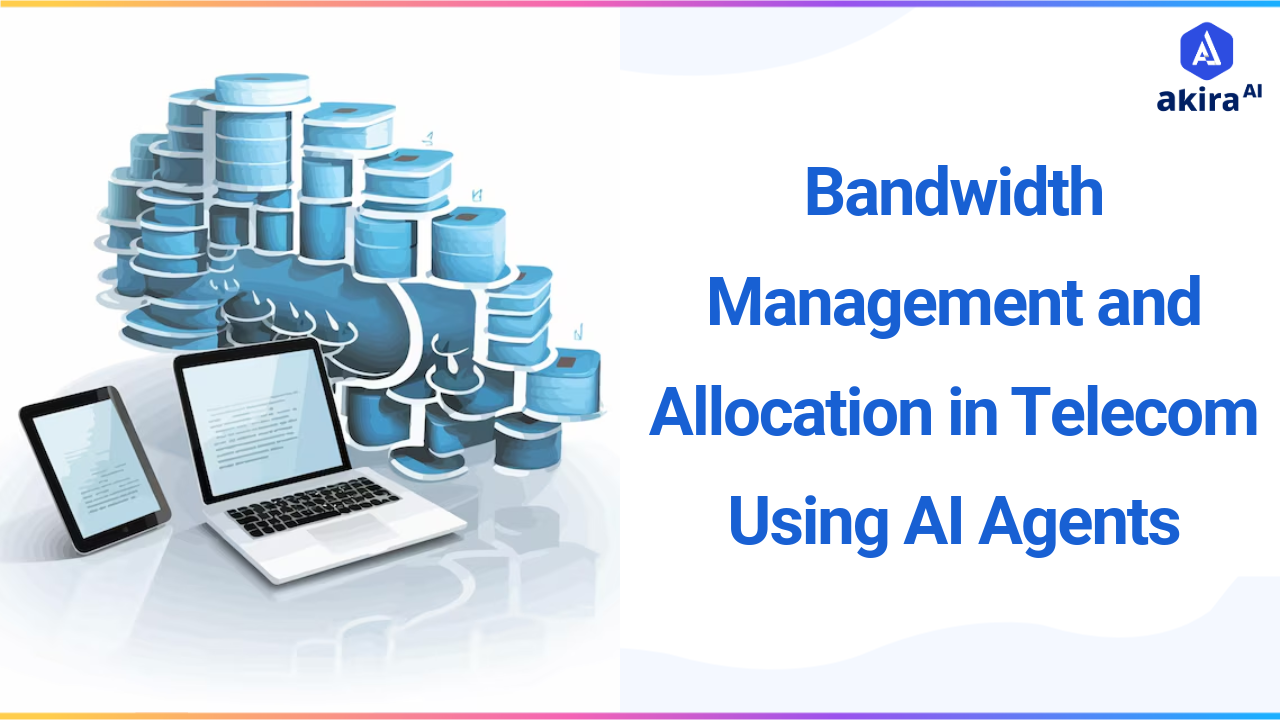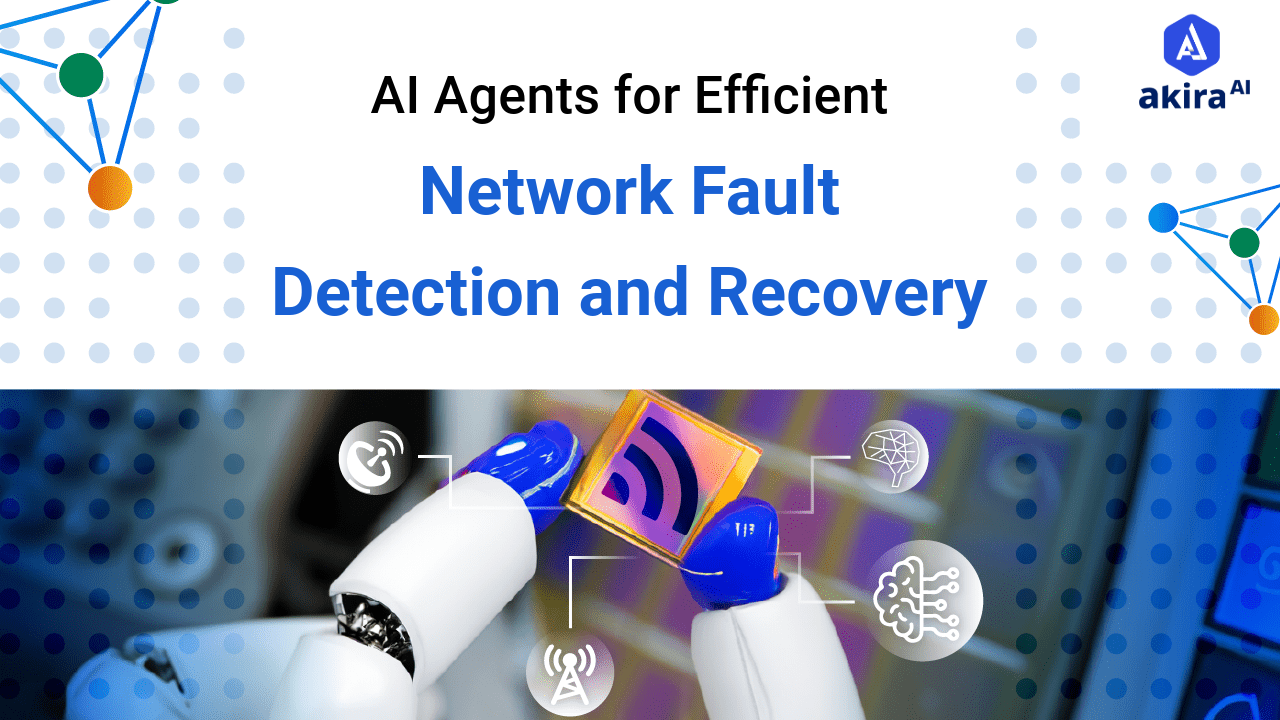Every journey begins with a single step; for telecom companies, that critical step is customer onboarding. New customers initially engage with a provider in this phase and create an initial experience that may define their interactions going forward. In the highly competitive industry environment, it is crucial to provide the client with a smooth onboarding process. With the rise of AI agents, telecom companies are discovering innovative ways to enhance this process, making it efficient and enjoyable for customers. By leveraging AI-powered customer onboarding, businesses can address customer needs more effectively, minimizing frustration and maximizing satisfaction. In this blog, you will learn how these technologies revolutionize onboarding and bring about a positive systematic change toward improving the customer’s journey.
What is Customer Onboarding Automation?
Telecom customer onboarding automation is generally defined as the strategic and systematic incorporation of technology in the onboarding process. This process includes the data collection stage, data verification stage, and service delivery stage. By automating these tasks, telecom providers can minimize the time it takes for new customers to access their services, ultimately enhancing customer satisfaction.
An effective onboarding process is crucial in telecommunications, where competition is fierce, and customer expectations are high. A well-executed onboarding experience can significantly reduce churn rates, ensuring customers feel valued and understood from their first interaction. With the rise of digital communication channels, the need for a seamless onboarding process has become more pronounced as customers increasingly demand instant gratification and support.
A Brief Overview of Customer Onboarding Automation in Telecom
AI agents are pivotal in customer onboarding automation by simplifying complex workflows and improving efficiency. These intelligent systems can handle various tasks, such as responding to customer inquiries, processing documentation, and guiding users through onboarding. By employing AI-powered automation, telecom companies can significantly reduce the manual workload, leading to quicker onboarding and improved customer experiences.
Implementing AI-powered customer onboarding not only accelerates the process but also enhances the accuracy of data handling. AI agents can analyze customer data in real-time, ensuring discrepancies are flagged and resolved promptly. This proactive approach mitigates the risks associated with manual data entry, such as incorrect information leading to service disruptions. As AI technology evolves, the potential for even more sophisticated onboarding processes increases, promising a future where customer interactions are increasingly seamless and efficient.
Traditional vs. Agentic AI-Based Customer Onboarding Automation
|
Feature |
Traditional Automation |
Agentic AI-Based Automation |
|
Process Complexity |
Often rigid and complex |
Flexible and adaptive |
|
Customer Interaction |
Limited to scripted responses |
Dynamic, personalized interactions |
|
Data Processing |
Manual checks and verification |
Automated data validation with AI agents |
|
Error Rate |
Higher due to manual input |
Significantly lower with AI-powered automation |
|
Response Time |
Slower due to manual processes |
Instantaneous responses using AI chatbots |
|
Customer Feedback Handling |
Reactive, with delays |
Proactive, allowing for immediate adjustments |
|
Training Requirements |
Extensive training for staff |
Minimal training is needed due to intuitive AI interfaces |
Akira AI Multi-Agent in Action
Akira AI utilizes a multi-agent system to enhance the customer onboarding process. Key agents include:
-
Data Verification Agent: This agent helps verify customer information with virtually no instances of errors or noncompliance. It can determine if documents are real and check the customer’s identity against other databases.
-
Support Agent: An onboarding Virtual Assistants and Chatbots that helps customers with questions during the onboarding process, hence offering real-time solutions. This particular agent understands natural language and, therefore, provides real-time response, which enhances the level of customer satisfaction.
-
Provisioning Agent: This agent oversees the provision of services so that customers are provided with connections to the services offered. It takes care of the technical matters of the provisioning by, for instance, switching on services and setting hardware parameters.
-
Engagement Agent: It proactively contacts customers during the onboarding process, helping and gathering feedback. This constant communication helps keep customers engaged and informed.
Use Cases and Application of Customer Onboarding Automation
-
AI Chatbots for Initial Contact: AI chatbots in telecommunications greet new customers and guide them through onboarding. These chatbots can answer frequently asked questions and provide personalized information based on customer needs.
-
Document Verification: Through artificial intelligence, tasks such as checking required documents are done away with, and therefore, less time is taken, and fewer errors are made. This makes sure that wherever services are activated, all the paperwork is in order and well done.
-
Personalized Welcome Messages: Customizing onboarding experiences based on customer data analysis. This way, telecom companies can make customers feel valued and understood at once.
-
Proactive Follow-ups: Facilitates notifications to the customer with details on activities that need to be completed for onboarding. This keeps customers engaged, especially in the e-commerce platform, and helps them avoid any barriers.
-
Feedback Collection: Engaging cognitive AI agents to get feedback from the customer end during onboarding so as to facilitate modifications in real-time. This data can be looked at and used to find conclusions about the common complaints and opportunities for improvement.
-
Cross-Selling Opportunities: Autonomous agents can identify potential upsell or cross-sell opportunities during onboarding. Telecom providers can present relevant offers that enhance customer value by analyzing customer profiles and preferences.
-
Integration with CRM Systems: Seamless integration of these agents with Customer Relationship Management (CRM) systems allows for a holistic view of the customer journey. This integration ensures that all customer interactions are logged in and can be utilized for future reference.
-
Enhanced Accessibility: AI-powered solutions can cater to diverse customer needs, including language preferences and disabilities. This inclusivity is essential to ensure all customers have a smooth onboarding experience.
The Operational Benefits of AI Agents for Customer Onboarding Automation
-
Increased Efficiency: Autonomous agents can increase performance by up to 25% of work time, eliminating waiting time and non-productive time. Through efficiency, services are delivered faster, and future business relationships are enhanced through good customer experiences.
-
Enhanced Productivity: Automating routine tasks lets human operators pour their energy into strategic initiatives, boosting productivity by around 30%. This shift also leads to better utilization of human resources, improving overall business performance.
-
Lower Operational Costs: AI-powered automation can help reduce operational costs by properly allocating resources. This eliminates the need to employ several workers to help telecom companies invest in other important areas such as innovation and improvement of their services.
-
Improved Customer Satisfaction: Faster onboarding processes increase customer satisfaction and loyalty. Satisfied customers are likelier to recommend the service to others, driving new business opportunities.
-
Better Data Management: Enhanced accuracy in data processing ensures compliance and reduces manual errors. This data integrity is crucial for maintaining trust and reliability in customer relationships.
-
Scalability of Operations: These agents can easily scale operations in response to increased customer demand. This flexibility is essential in adapting to changing market conditions and customer preferences.
Technologies Transforming in Customer Onboarding Automation
-
Natural Language Processing (NLP): Allows the AI agents to comprehend and provide responses to customer queries. This technology brings a natural touch to the interaction, making it easy for users to engage with.
-
Machine Learning: Enables the evaluation of different attributes and traits for more effective strategies in onboarding through data. The customer’s need can be predicted using machine learning algorithms which can help provide support before the need arises.
-
Cloud Computing: Facilitates scalable solutions for managing customer data and interactions. Cloud technology makes it possible for AI agents to have operation information in real-time, improving effectiveness.
-
Robotic Process Automation (RPA): Gets rid of monotonous procedures involved in onboarding, which tends to make the process improved. RPA can take over data entry, document processing, and many other repetitive tasks.
-
Causal AI: Gives an understanding of customer behaviors so that the necessary engagement strategies can be developed. Such predictive ability enables telecom companies to foresee and meet their customers’ needs in due course.
-
Secure Data Protocols: Ensures customer data is protected during onboarding. Using modern security features is always helpful for keeping customer loyalty and meeting the requirements of the existing legislation.
The Future of AI Agents for Customer Onboarding Automation in Telecom
-
Increased Autonomy: AI agents will operate with higher levels of autonomy, reducing the need for human intervention. This kind of autonomy will help telecom organizations to work more effectively and efficiently, and free up more time for higher priorities.
-
Enhanced Security Features: Autonomous agents will ensure data privacy and compliance during onboarding. With growing concerns over data security, advanced AI solutions will be essential in protecting customer information.
-
Integration with IoT: Future onboarding processes will integrate more IoT data into the mix for smoother onboarding. This integration will enable telecom companies to deliver location-sensitive services at the right time.
-
Scalability: AI agents will enable telecom operators to scale onboarding processes in response to fluctuating customer demands. This adaptability is a major thing that will help to sustain a competitive edge especially when the environment is characterized by rapid changes.
-
Real-time Analytics: Advanced analytics will allow telecom companies to monitor onboarding processes in real-time, identifying bottlenecks and areas for improvement immediately.
-
Cross-Platform Functionality: Future agents can operate across various platforms and devices, ensuring a consistent onboarding experience regardless of how customers engage with the service.
-
Innovative Assistance for Agents: Intelligent agents will support human agents during onboarding, offering insights and recommendations based on data analysis to improve customer interactions.
Conclusion: AI Agents for Customer Onboarding Automation
As we conclude our exploration of customer onboarding automation, it’s clear that integrating AI agents represents a significant leap forward for telecom providers. These innovative technologies streamline processes and create a welcoming and engaging onboarding experience that leaves a lasting impression on customers. By embracing AI-powered automation, companies can ensure every new customer feels valued, supported, and connected from day one. This commitment to enhancing the customer's journey will improve satisfaction and foster long-term loyalty. Let’s continue championing these advancements in the telecom industry, working together to build a brighter future for customer relationships.


